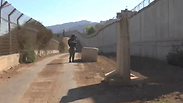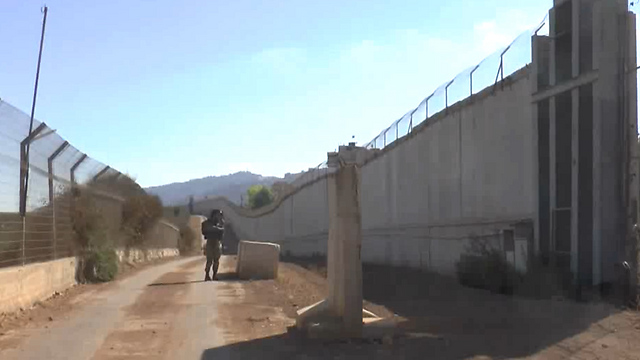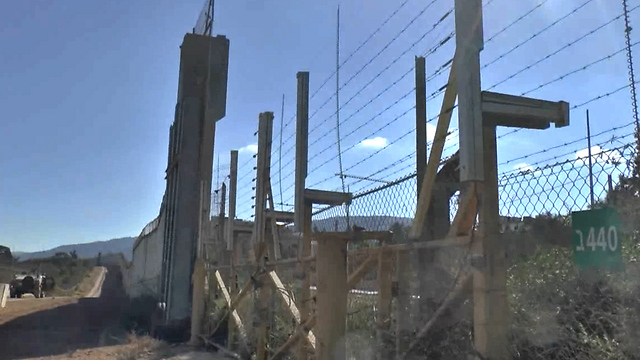
IDF beefs up northern border defenses
In preparation for a possible Third Lebanon War, in which large numbers of Hezbollah fighters will attempt to infiltrate Israeli territory, the IDF is beefing up border defense by installing new fences, more obstacles and reinforcing existing infrastructure
The IDF believes that Hezbollah will seek to exploit this weak point and attempt to infiltrate its Radwan special forces troops into Israeli territory in the next Lebanon war. The Radwan companies are comprised of dozens of heavily armed, select men who will attempt to quickly enter Israeli territory, capture an outpost or settlement near the border, raise the Hezbollah flag and present it as a symbol of victory.
As part of preparations against this scenario, the IDF is completing a 30-kilometer long border defense project that is part of a larger three-year project that has gained momentum in recent months.
The project consists of a series of engineered barriers that do not exist in any other part of the country. It consists of reinforced concrete panels dozens of meters high, concrete blocks, fortified towers and upgrades to existing fences that were put in place in the 80s.
The project is eventually expected to encompass the entire 120km Lebanese border, stretching from Rosh Hanikra to Mount Dov and Mount Hermon. However, the project is of relatively low priority in terms of resource allocation by the IDF General Staff and the government, so it will only be completed within a few years. The majority of resources and attention are currently focused on the Gaza border to guard against Hamas tunneling attempts.
In the meantime, the Northern Command has found alternative solutions, such as training programs for engineering battalions, which are being conducted in the north. As a result, the Galilee division has prioritized 30 kilometers of territory as "more threatened," and has erected barriers and other obstacles.
During a Ynet tour of the border, officials demonstrated the troubling ease with which forces in Lebanon can open fire at any moment towards Israel, especially near the international barrier, as was the case with the shooting Wednesday.
Col. Zaky Yeffet of the Northern Command explained, "We can't dig everywhere, so we found other solutions such as reinforcing the border fence and we placed large boulders near Hanita to act as an obstacle against possible infiltration. The concrete panels we also placed in the areas guard against small arms fire and anti-tank missiles. Additionally, we cleared brush wherever we could along the border to allow us to see approaching threats easier."
Another obstacle that has been taken into account are mine fields. There are currently more than a million and a half landmines spread out over 4,000 different fields. The majority of the mines are anti-personnel, but there are a few anti-tank mines also mixed in. The IDF periodically replenishes these mine fields, but the goal is to thin them out as much as possible due to the risks associated with them.












